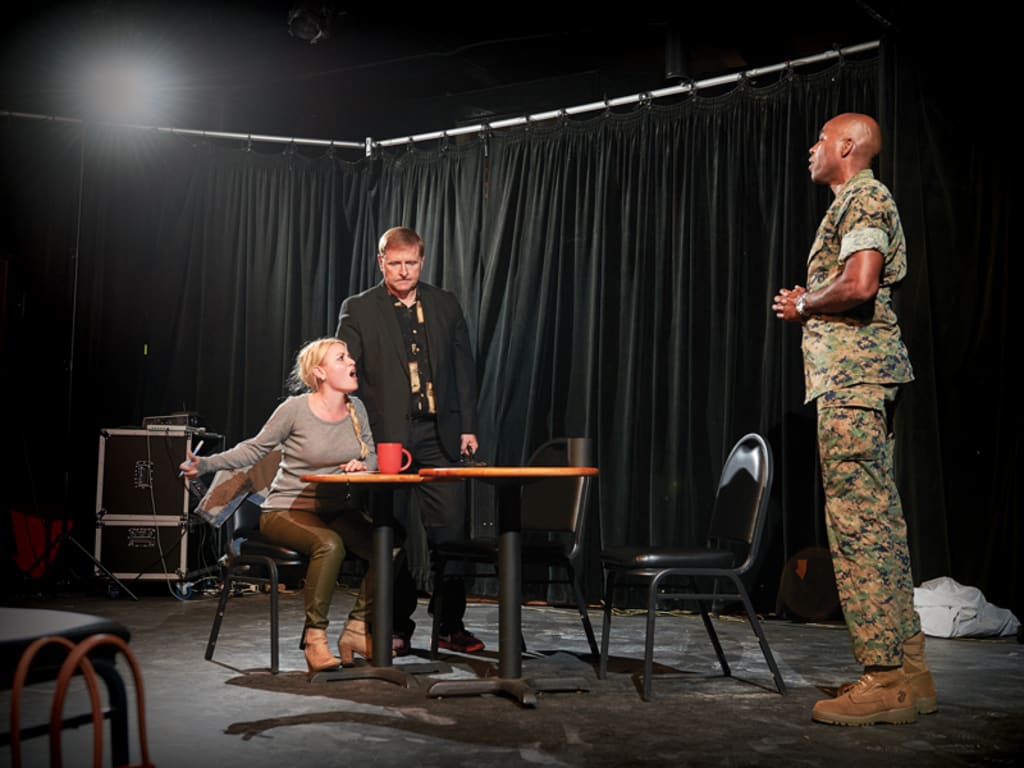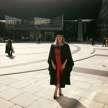What My Degree in Theatre Taught Me
I learned so much in my three years - just not necessarily what I though I would on a drama degree.

“There is no world without theatre”—Edward Bond.
It’s true.
I found this quote when I was 17, but in the last four years its meaning to me has changed a lot. I started a drama degree in 2015 convinced I was going to be on the West End—one of the big names, in demand all over the world.
I finished it earlier this year, much humbled, and ready to start training to be an English teacher. (I’ve toyed with the idea of writing a play and just putting myself in it, but we’ll see where that leads.)
On A Level results day 2015, 18-year-old me trotted off to sixth form quite happily to see how I’d done in my final exams. While most of my friends were pretty much as stressed as they’d ever been; I felt relatively calm. Not because I thought I’d done well—but because I already had an unconditional offer for what I thought was going to be the perfect course for me.
I disappointed myself with my grades—two B’s and two C’s—because I knew I was capable of better. But I brushed it aside and started prepping for the exciting bit—going to uni.
Now at the time, theatre seemed like the natural next step for me. I’d been dancing since I was four, singing since I learnt to speak—all that ABBA stuff. I’d decided age 11 that I could act, and since then I’d been in four shows with my dance school, six with my local amateur dramatics group, three local performance summer schools and then done West End Stage down in London—the highlight of my young life. I was utterly convinced that this was where my future lay. I’d applied all over the place—drama schools, universities, conservatories—and yet been unsuccessful pretty much everywhere I went.
I’m not stupid, I know that these are selective schools, and that people try year after year to get a place. 15,000 applicants for 18 places—standard stuff. But my final audition changed everything for me.
I was at Guildhall School of Music and Drama in London—where I’d done West End Stage just months earlier—auditioning for their BA Acting course. And it was here that I met someone so disillusioned with the whole industry that I started to wonder what the hell I was getting into.
I don’t know what her name was or where she is now, but as an ex-student five years into trying to build a career, she gave me a no-holds-barred account of how brutal it could be trying to make a name for yourself as an actor in London. Frankly, it scared me.
I decided that day that I couldn’t do it again—couldn’t keep auditioning year after year in the hope something—anything—would turn up. I decided that if I didn’t get in anywhere, I’d do something else entirely. I thought about gap years, law degrees, English degrees. I considered redoing my A Levels—picking new subjects and starting again.
But, I got an unconditional offer at a Uni and I took it. Why? Because at my core, no matter what people said to put me off, I always believed that I would be different somehow—that the fate that befell that poor girl what not be the same as mine. I think we all do that if I’m honest—believe we’ll make a better job that anyone else. It’s a coping mechanism, probably.
But actually, by September, I’d convinced myself that this course would be even better than going to drama school, because there were more options—there were essays to write, scriptwriting classes, TV and Radio studios. All that, plus acting classes, voice classes and movement classes.
Unfortunately, by June, I felt I’d made a terrible mistake.
I’d had a great time in my first year and made some great friends, but I can count on one hand the amount of actual performances we did. (I can actually count on two hands how many we did in the whole three years.) And the voice and movement classes were frankly disappointing, given that I was expecting formal dance classes and singing and accent lessons.
Ultimately, I was very confused in the summer of 2016. I was a year into a degree that I knew wasn’t right for me, but I had useless A Level results and I’d spent so long planning a future in the theatre, I didn’t know what else I would ever want to do. I realised that summer that one of the driving forces behind my decision to pursue this career had been various family members’ reactions to it—
“Drama? Really?”
“Isn’t that more of a hobby?”
And, incredibly;
“Oh right, a drama degree. So when did you decide you wanted to be a waitress?”
All of these things, rather than discourage me, lit the fire beneath me and spurred me on. That was the first thing I learnt on my degree.
The second was that for every person you meet with genuine talent and ability, you’ll meet 4 who think they’re better, and, invariably, aren’t. I started to understand why this industry is such a tough nut to crack. It is saturated with people who just don’t have what it takes to make it, but keep trying anyway. I suppose it’s commendable really, but endlessly frustrating for those who do have the skill.
The third, and by far the hardest, thing I learnt was that I might not be good enough. I’m good at what I do—I believe that—but I doubt I’d ever have been good enough. It’s something that’s hard to accept. But in the end, you can’t be everybody’s version of perfect.
Perhaps paradoxically, by the end of the first year of my degree in theatre, I didn’t feel like I really liked it anymore. I felt apathetic towards the whole business of acting and performing—I wanted desperately to sit in lectures, and take notes, and write essays, and sit in the library until all hours reading research papers. My drama degree managed to put me off drama—but thankfully it didn’t last. I went back to my amateur dramatics group, and back to my dance school, and I fell back in love with the whole industry.
I had to admit though, maybe it was better as a hobby? Maybe this wasn’t where my future was going to be. But then I realised that that didn’t mean it couldn’t be a part of an altogether different future.
In the next two years I learnt the most important lesson of all—I learnt that I have other skills besides performing. I reawakened my latent love of writing—stories, plays, articles, TV shows—it was my first and perhaps my greatest love. I found a love for radio acting and voice work—one which I still plan to put to use now that I’ve graduated.
Crucially, I found out that I love teaching—and that’s what I’m doing next. I might have only just started, but teaching English already seems like a much better fit for me.
So what did I learn? I learnt that what I thought I wanted wasn’t what was right for me—and believe me that’s hard to come to terms with. I learnt that this industry is harder to break into than anyone can ever prepare you for. That you don’t have to be a West End Actress to have theatre as a major part of you life. I learnt that my skills stretch beyond those I can use on a stage, and I learnt that actually, I’m very glad that they do.
Believe me, four years ago I wouldn’t have believed you if you’d told me that this is where I’d be now. And I wouldn’t have taken my own advice either.
And yet I feel it’s important to pass on what I’ve learnt now that I’m at the end of this journey.
To anyone who wants a career in theatre—I wish you all the luck in the world, and I have every faith that, if you truly want it enough, you’ll get there one day.
To anyone who’s sweating reading this and wondering whether they’ve made the right decisions—don’t. Only you know what you want. And in my opinion, there are no wrong decisions, only different ones.
That might sound a bit shallow, given everything I’ve said here, but while I know now that I could have gone down a very different route, regrets are pointless. My degree wasn’t what I thought it would be, and at times I wished I’d made different choices, but I made great friends in my three years and learnt a lot of important lessons—even if they weren’t necessary the ones I thought they would be. I know for a fact I wouldn’t be where I am now if it weren’t for decisions I’ve made in the last three years—and I wouldn’t change where I am now for the world.
I know that if I’d done something different, more academic, something that more of my family might have approved of, I’d’be spent the rest of my life wondering ‘what if?’
What if I’d ended up being a famous actress?
What if I’d got in a Hollywood blockbuster?
What if I could’ve played Elphaba in Wicked?
It’s human nature I guess, but that doesn’t make it any less painful.
In the end, I think we all make decisions we think are right for us at the time. Having regrets never seems worth it in my eyes because regretting a choice means regretting everything that came after it too. No matter how bad you feel life is, there’s no guarantee it would’ve been any better if you’d made different choices.
I’m convinced that if we want things enough, we will eventually get there.
Even if ‘there’ isn’t where we thought it would be.
About the Creator
Amy Prendergast
‘There is nothing either good or bad, but thinking makes it so’ - Shakespeare






Comments
There are no comments for this story
Be the first to respond and start the conversation.